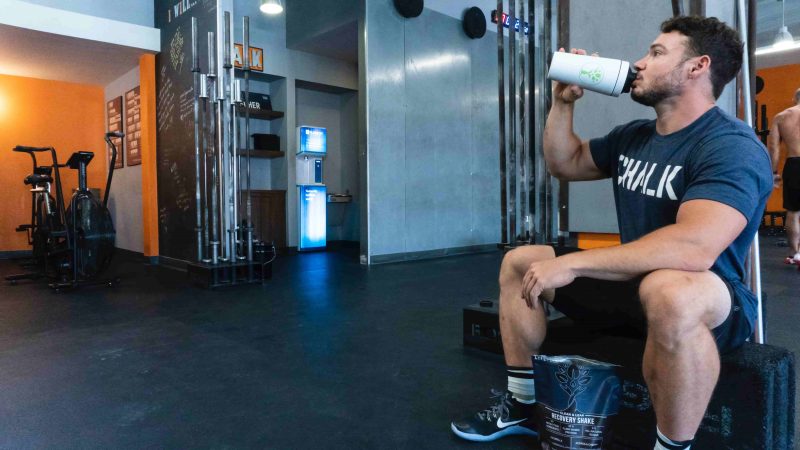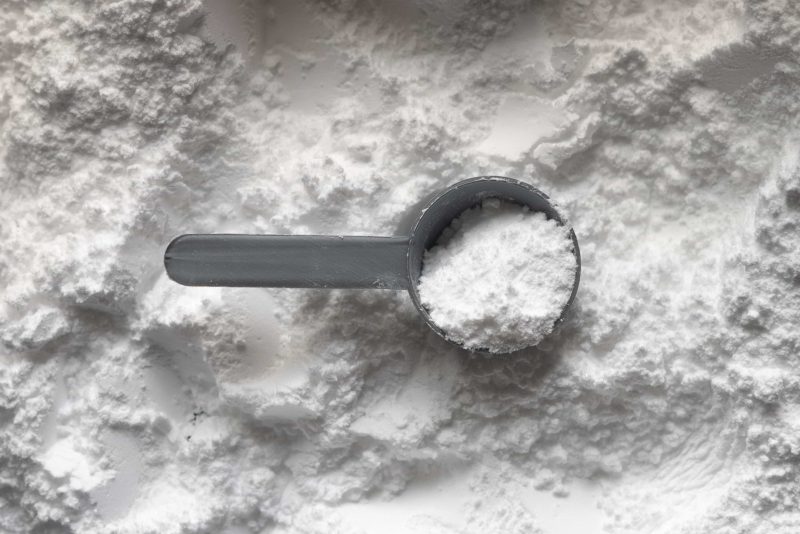Supplements like protein, creatine, and pre-workout can be confusing if you’re new to the gym scene. It’s okay to be confused, and it’s best to never take something you don’t understand the full effects of. In the spirit of transparency in the fitness world, I’ve created this short and sweet guide to the most common supplements that Instagram influencers, fellow gym-goers, or your personal trainer might be recommending.
Before we get into this list: You never need to take any of these supplements to lead a normal and healthy life, nor do you need to take them to have a ‘good’ workout. What’s most important is discovering what works for you. While these supplements are often used to create quick muscle growth, you can undoubtedly achieve a healthy and strong physique without incorporating any of these into your diet. Always consult a physician about these things, test products before buying in bulk, and pay attention to what your body is telling you.
Protein Powder: Muscle Recovery, Building, and Tissue Repair

Let’s begin with what is likely the most widely known gym supplement of all time: protein powder. Sprinkled in smoothies, mixed into pancakes, or shaken with some water and chugged straight, protein powder is primarily used to supplement your protein intake, supporting increased muscle growth, better recovery, and greater fitness. While traditional protein powders are made from whey (a by-product of milk processing), you can also find plant-based powders like pea protein that work just as well.
It’s worth noting that have shown that protein powder is only required by people who aren’t getting enough protein in their daily diet to support their activity levels. In fact, you don’t need as much protein as you probably think you do. You don’t have to drink this stuff to have the right amount of protein in your diet—you can simply add more foods like legumes, beans, lean meats, eggs, or cheeses.
That said, many people swear by protein, and it’s all about what you need from your diet. I recommend tracking your current protein intake before committing to this track, weighing it against how much protein you actually need, and seeing how you can fill in that deficit.
Creatine: Energy, Lean Muscle Mass & Quick Recovery

When consumed, creatine supplements turn into something called creatin phosphate. This is an ingredient the body uses to create adenosine triphosphate, or ATP, which is what your body uses to fuel muscle contraction. While the body already produces some creatine, using a supplement can provide an extra boost for your workout; think of it like rocket fuel.
Energy boosts like the one creatine provides help to build lean muscle mass, as you can go harder and faster in your workout than you might have been able to without the extra help. That said, many people have bad experiences with this supplement for the same reason they have a bad experience with energy drinks. An energy surplus can feel pretty strange if you’re not used to it, and over time, it can lead to side effects like anxiety, difficulty breathing, and even kidney problems if used improperly. Keep in mind, these are very rare side effects, but the science around this supplement is still in progress.
My personal experience with creatine is positive overall, boosting me through tough workouts and making me feel like I’m on top of the world as I pump iron or, you know, walk gently on a treadmill. That said, I did notice two things happening to my body: my anxiety would spike, and the crash from this energy spike would leave me with worse gym brain than normal. I walked into a door afterwards on more than one occasion, let’s just say that.
BCAAs: Boost Muscle Growth & Enhance Performance

Finally, we have potentially the most scientific-sounding supplement on the block: branch-chain amino acids, or BCAAs. This well-loved supplement is a collection of three key amino acids, those being leucine, isoleucine, and valine. The name ‘branch chain amino acids’ comes from the construction of the acids’ molecules; each one has a little chain branching off to one side. Makes sense, right?
These acids are considered essential because—much like B12—your body cannot produce them. It’s up to you to consume enough of them to keep your body going through your diet. They represent a huge chunk of your body’s essential aminos, and they make up around 18% of the amino acids found in your muscles, where they are also broken down. Because they break down in the muscles (unlike all other amino acids), these have been connected to energy creation during physical activity. BCAAs can be thought of like your body’s building blocks, helping to support muscle growth (leucine is the MVP there). They’ve also been linked to reducing fatigue during exercise, but it’s been theorised that this effect runs out once you’ve been training for a while.
I also have experience with BCAAs, and I definitely noticed a change in my body when I began to use them (I used Ghost supplements BCAAs). However, I used all three of the supplements listed here at once, so I cannot attribute any effects I noticed purely to one of them. That said, they are a necessary dietary component, one you can extract from a protein-rich diet without any supplementation should you so choose.
Stay up to date with everything Zizacious has to offer by signing up to our newsletter.
We’ve got everything you need to live your life to the fullest. Sign up to our newsletter for more gym breakdowns, book and film reviews, health advice, and pretty much anything else you can think of. Don’t worry, we’ll keep your inbox clutter-free!











